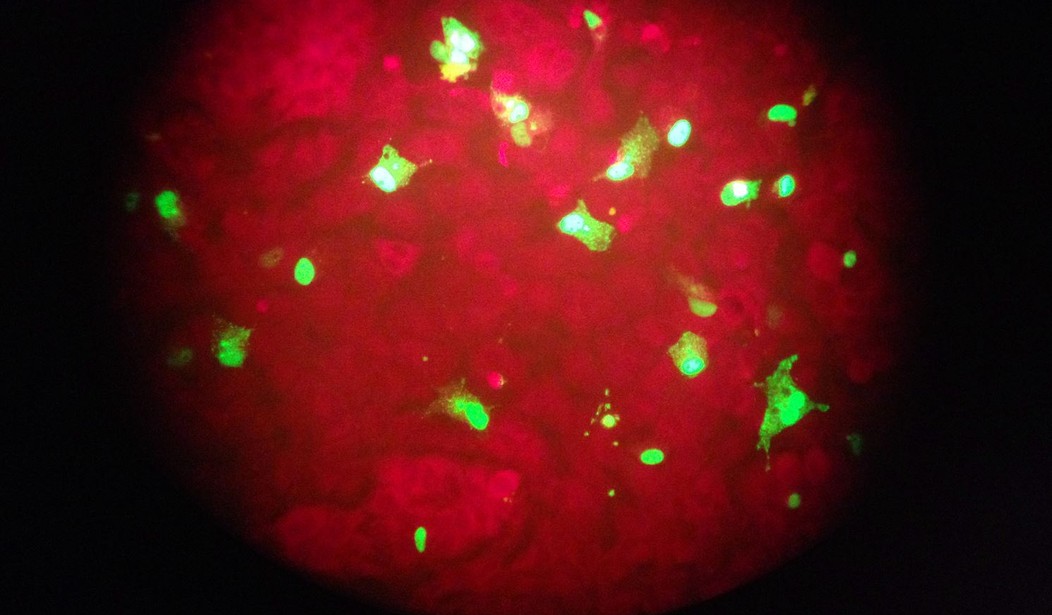There was quite a stir going around a couple of weeks ago when we learned that researchers at Boston University had created (possibly inadvertently) a new strain of the novel coronavirus that caused an 80 percent mortality rate in laboratory mice. (The “normal” version of the virus only causes mild illness in mice with few deaths being recorded.) Of course, you might not have been aware of that unless you were following conservative news outlets because CNN and MSNBC barely mentioned it. This type of “gain-of-function” research is highly controversial and has been the subject of many debates since the earliest days of the pandemic. But are people simply overreacting to something that they don’t understand while these scientists have everything under control? That’s what some of the experts at the journal Nature seem to believe. If you were all masters of The Science like the researchers at Boston U, you’d know to keep your opinions to yourself and just let the masters of medicine get on with their work.
When researchers at Boston University (BU) in Massachusetts inserted a gene from the Omicron variant of SARS-CoV-2 into a strain of the virus from the beginning of the pandemic, they were trying to understand why Omicron causes mild disease.
But the experiments, described in a 14 October preprint1, have ignited a red-hot controversy over what constitutes truly risky SARS-CoV-2 research — especially now that much of the world’s population has some immune protection from the virus and COVID-19 treatments are available.
At issue is whether — and when — researchers modifying SARS-CoV-2 or other deadly pathogens need to keep regulators and funding agencies such as the US National Institutes of Health (NIH) informed about their work, even if the agencies didn’t fund the experiments in question. Studies that make pathogens more transmissible or virulent are sometimes called ‘gain of function’ research.
Ewen Callaway and Max Kozlov, the authors of the linked report, refer to the controversy over the experiments at Boston University as a “brouhaha.” One virologist interviewed for the article said that the public’s horrified response to this news demonstrates “the lack of clarity that people have on exactly what sorts of experiments have benefits that outweigh risks, and who decides how it’s all reviewed.”
I see. So the public is simply overreacting because of a “lack of clarity” regarding what’s going on at Boston U. Keep in mind that the original experiment was described as a process where they inserted a gene from the Omicron variant into an earlier form of the virus to find out why Omicron produced such mild symptoms. But instead of another mild variant, they produced one with an 80% lethality rate. I’m no doctor (and I don’t even play one on TV) but that sounds kind of like the opposite of the intended effect, doesn’t it?
To their credit (I suppose), the authors acknowledge the fear that people have over the possibility that the new variant might “escape” from the lab and begin running wild all over the world. Because, you know… it’s not like that’s ever happened before, right? Except this time it could turn out to be an actual pandemic and wipe out 80% of the planet’s population.
But the study’s authors argue that such a concern should be largely unfounded. The new variant, they say, was created from two older variants that have largely been “outcompeted” by newer strains, so it would be “unlikely to spread widely if it ever escaped.” I don’t know about you, but there are an awful lot of “shouldn’t” and “unlikely” descriptions in that explanation when the word most of us were looking for was “impossible.”
So what about oversight? Aren’t these scientists supposed to be checking with the CDC or the National Institute of Health or somebody before firing up the Frankenstein machinery in the lab? As it turns out, not so much. The team that conducted this work admitted that they have received grants from the National Institute of Allergy and Infectious Diseases (NIAID) and other branches of the NIH which would normally require some oversight, but this particular project was “carried out with funds from Boston University”, so they are “exempt from additional review.”
So there you have it. No further review is required and all of you peasants can go about your business, resting easy in your beds at night knowing that they have absolutely the best people handling this situation. And the fact that there is now a new version of COVID hanging around in Boston that could literally mean the end of humanity in a worst-case scenario should be brushed from your simple little minds. Don’t you feel better already? I know that I sure do.








Join the conversation as a VIP Member